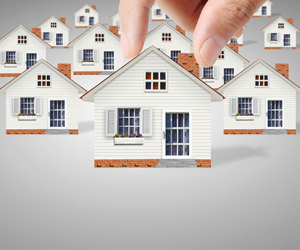What are the Best Ways to Invest?
 For a good investment you need to know why, how and when to invest. So now is the right time to invest. By the power of compound returns in investment you can grow your money. Comparably there are 4 best ways to invest your money.
For a good investment you need to know why, how and when to invest. So now is the right time to invest. By the power of compound returns in investment you can grow your money. Comparably there are 4 best ways to invest your money.
Though many people do not trust the financial markets but historically it’s a fact, investing in Stock Market actually paid off. Invest in small sum by a method called “dollar cost averaging” over a length of time. The method works like when the market is high you are buying fewer shares and when it is low, vice-versa. So, over a time, one can have lower average share price using this method. Some tools we can use to invest:
A typical suggestion is to invest in mutual funds or ETFs. For mutual fund you can use a financial-advisor who on your behalf will sort out the well-performing actively managed funds from the other non-performing funds else you can cling to an existing brokerage-account. There are also few companies who will help you to invest money in ETFs based on your appetite for risk, investing goals and other factors without any charge for managing. You can also find very low charge robo-advisers for this purpose.
The index funds which are not actively managed but have a good long history of solid investment and can be used for retirement purpose. These funds hold every stock in an index like the S&P 500, including big-name companies such as Apple, Microsoft and Google. As these companies offer low turn-over rates so their fees and tax bills tend to be low also. The trick here is to buy all the big companies through the S&P 500 consistently in a very low-cost way and not picking up the right company. Even, say in a period of 10 years, low-cost index funds could outperform hedge funds.
Peer-to-Peer Lending is a method to lend money to individuals in small increments as if you were the bank and getting interest from them using platforms like Lending Club and Prosper.
In Real Estate investment, not necessarily requires dealing physically and going through the hassles of a landlord. There are many ways by which you can invest without dealing with the physical property like real estate notes or Fundrise. These are all hands-off investments where you will be a part of the owner without dealing physically. You can earn good returns but there are risks too, for trusting third-party on your investments.
Investing in yourself is one of the best ways for investment. There are few ways to do so like, read a lot of books on successful personal finance strategies or leadership skills which will make you absolutely smarter in a course of time, investing into material that you can learn from other people, personal coaching and don’t think about the idea of going back to a business-school. Though this kind of investment might sound cliché but it’s a bet that could absolutely pay-off.
 Money saving is taught to us from the beginning. We try to save everywhere and even in the taxes. But not paying your taxes are not saving, it’s illegal. But there are many ways one can easily save thousands of rupees in taxes. Here is the list of the different way in which you can save taxes.
Money saving is taught to us from the beginning. We try to save everywhere and even in the taxes. But not paying your taxes are not saving, it’s illegal. But there are many ways one can easily save thousands of rupees in taxes. Here is the list of the different way in which you can save taxes. If you’re in your 30’s, many life transitions happen like from moving up in your career to buying a home. So, getting started in your 30’s and making smart moves with your money will help achieving your future financial success and will provide you with plenty of time to save for retirement and the future.
If you’re in your 30’s, many life transitions happen like from moving up in your career to buying a home. So, getting started in your 30’s and making smart moves with your money will help achieving your future financial success and will provide you with plenty of time to save for retirement and the future. Property or real-estate investment is also like any other business has associated risks. But there are many people who have earned a fortune from it. But it doesn’t guarantee that everyone can earn a fortune by investing in property. Whatever type of property you are purchasing, all these requires a large amount of cash which makes it a very risky business provision. There are many things you need to know before investing in real-estate.
Property or real-estate investment is also like any other business has associated risks. But there are many people who have earned a fortune from it. But it doesn’t guarantee that everyone can earn a fortune by investing in property. Whatever type of property you are purchasing, all these requires a large amount of cash which makes it a very risky business provision. There are many things you need to know before investing in real-estate. Choosing the home of your dreams can be a nightmare decision for a person. It takes so much effort of putting in the research work, visiting sites, dealing with the agents. To go this daunting process, follow the steps below:
Choosing the home of your dreams can be a nightmare decision for a person. It takes so much effort of putting in the research work, visiting sites, dealing with the agents. To go this daunting process, follow the steps below: Investment in the house or more specifically buying a house has been considered a good investment. But after buying a house are you planning to move it? Owing to a house and renting it out is more beneficial and better choice.
Investment in the house or more specifically buying a house has been considered a good investment. But after buying a house are you planning to move it? Owing to a house and renting it out is more beneficial and better choice. Making a risk free investment is a myth. You have to accept that every investment has its own pros and cons. Thereby; you can select which one would be the best-suited investment for you. Many investors target on real estate, which probably can be the riskiest investment if you have not done research thoroughly. Here are some ways to make a smart real estate investment:
Making a risk free investment is a myth. You have to accept that every investment has its own pros and cons. Thereby; you can select which one would be the best-suited investment for you. Many investors target on real estate, which probably can be the riskiest investment if you have not done research thoroughly. Here are some ways to make a smart real estate investment: Home is a place of respite and retreat. Home is as much an emotion as it is the four walls wherein you live. And because of this very reason, the process of picking a new place to live is an exciting yet nerve wrecking experience. Whether you’re young and just starting off in life, being independent, living with your friends or you are a family man and looking for a cosy nest for your children to grow, a new home is a big decision. If you’re not checking for the smallest of flaws and making sure you’re getting the perfect place at the perfect price, you’re doing it wrong.
Home is a place of respite and retreat. Home is as much an emotion as it is the four walls wherein you live. And because of this very reason, the process of picking a new place to live is an exciting yet nerve wrecking experience. Whether you’re young and just starting off in life, being independent, living with your friends or you are a family man and looking for a cosy nest for your children to grow, a new home is a big decision. If you’re not checking for the smallest of flaws and making sure you’re getting the perfect place at the perfect price, you’re doing it wrong. Buying your first property can be one of the most important and complex financial decisions of your life. There is a lot of paper work, location scouting, meeting the right people and several such factors to look into. This can put you in the state of predicament and you might end up taking a wrong step. So here are some of the tips that might help you come up with a better solution:
Buying your first property can be one of the most important and complex financial decisions of your life. There is a lot of paper work, location scouting, meeting the right people and several such factors to look into. This can put you in the state of predicament and you might end up taking a wrong step. So here are some of the tips that might help you come up with a better solution: Sell a property or rent it? There has always been a tiff between the two. While selling your house, you can earn a lot by it. On the other hand, to rent a house is a responsible task to do. You become the landlord and also have to look after the new member of the house. Its a little bit of tough yet manageable. It is still seen that many people prefer to sell their house so that they can relocate to other place but what’s the point in that when you can easily rent it out with earning money from it!!
Sell a property or rent it? There has always been a tiff between the two. While selling your house, you can earn a lot by it. On the other hand, to rent a house is a responsible task to do. You become the landlord and also have to look after the new member of the house. Its a little bit of tough yet manageable. It is still seen that many people prefer to sell their house so that they can relocate to other place but what’s the point in that when you can easily rent it out with earning money from it!!